
Culture
11:17, 17-Jun-2018
Two generations spent over 30 years turning desert into fertile land
CGTN
03:20
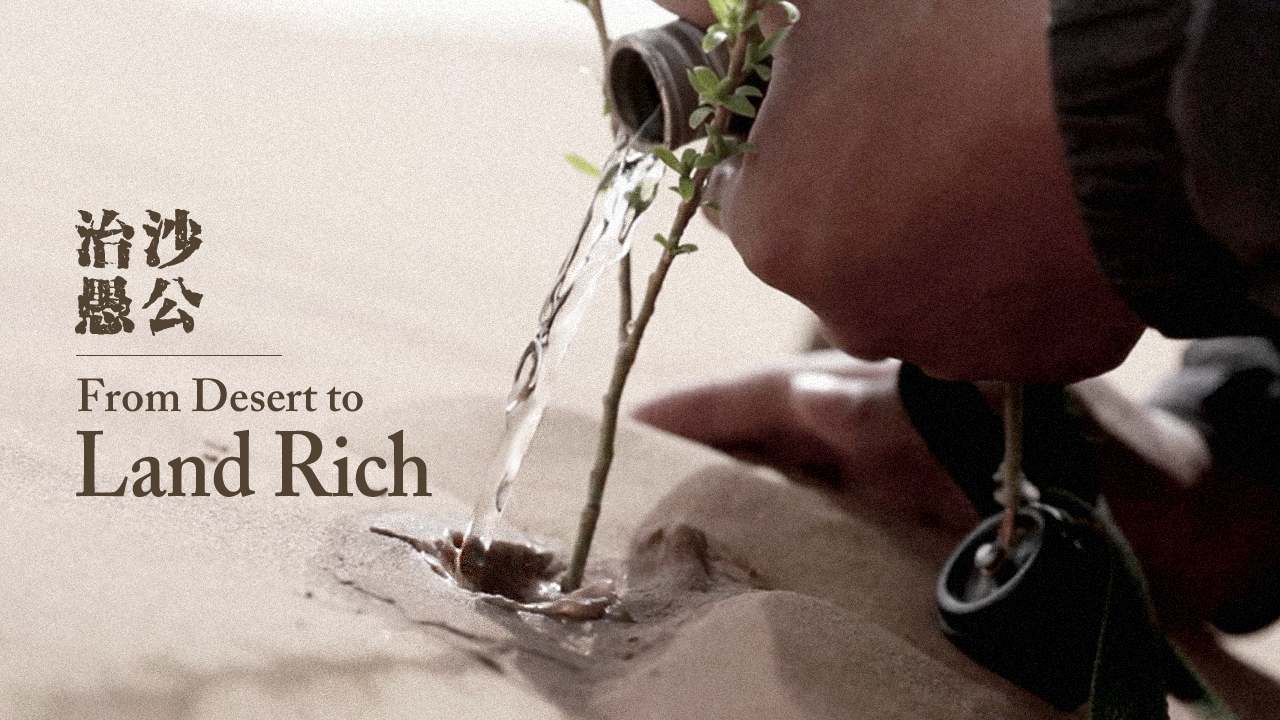
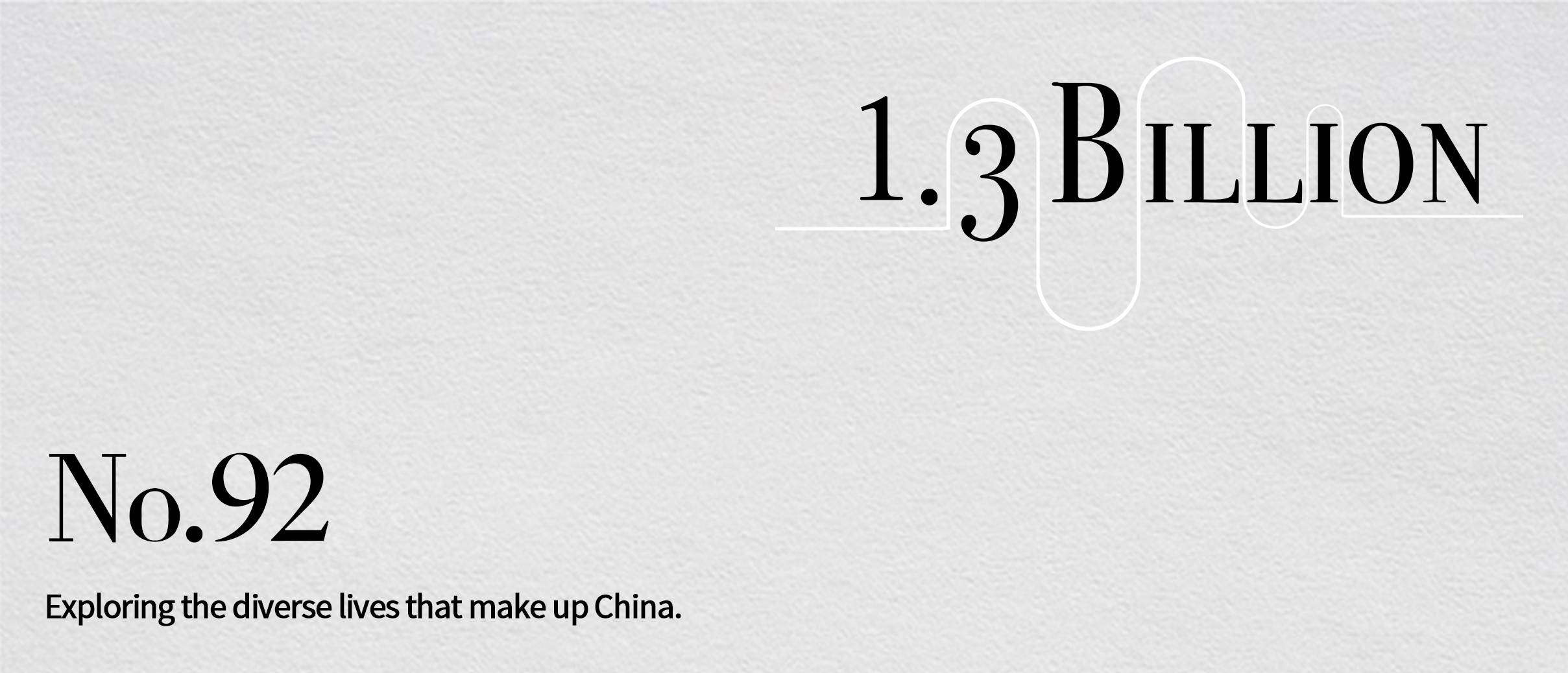
CGTN
CGTN
Located between Ordos city of Inner Mongolia Autonomous Region and Yulin Prefecture of Shaanxi Province, Mu Us Desert is listed as one of China's four major sandy lands.
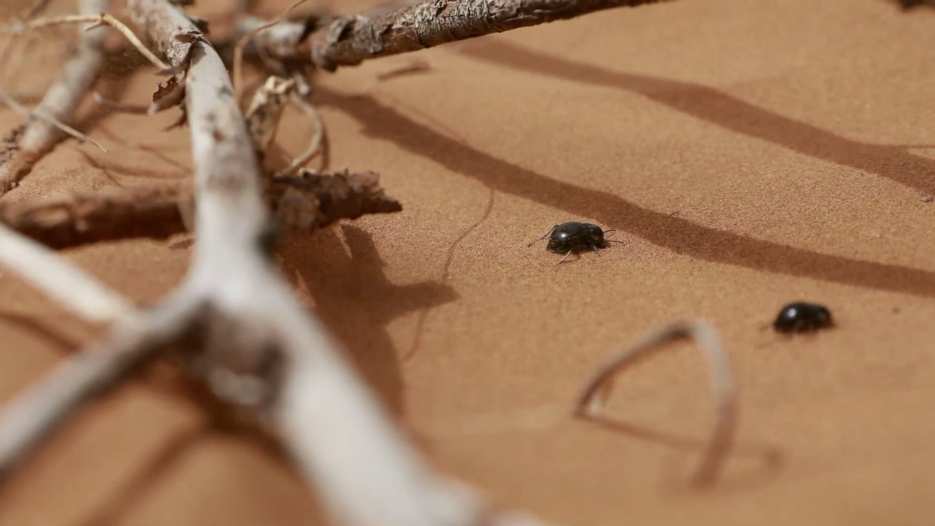
CGTN Photo
CGTN Photo
It used to be a fertile pasture in ancient times. Due to war damage and climate change, however, it gradually became a barren land with frequent sandstorms in the dynasty of Qing. The desert continued to expand southward, forcing the inhabitants to yield.
Zhang Liqiang is the third child in the family, whose ancestors had settled here at Jingbian county, southern fringe of the desert. When he was a child, there was nothing but sand. It was quite slippery walking barefoot. Although fun for the kids, these magnificent dunes have been devastating for local farmers' lives.
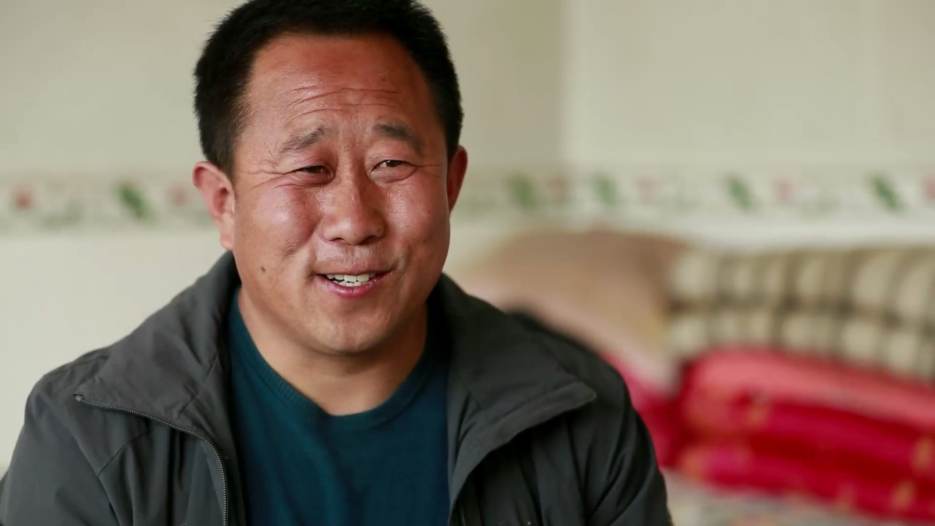
Zhang Liqing./ by CGTN
Zhang Liqing./ by CGTN
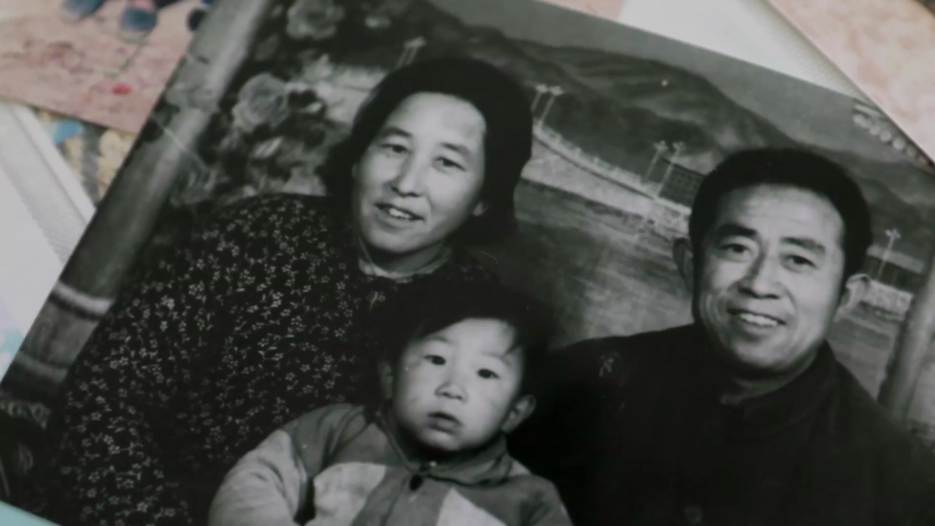
Zhang Liqiang and his parents./ Photo courtesy of Zhang Liqiang
Zhang Liqiang and his parents./ Photo courtesy of Zhang Liqiang
In the spring, many crops would be uprooted by the sandstorms. After an overnight wind, the door could be blocked by piles of sand. The villagers had to shovel them every morning.
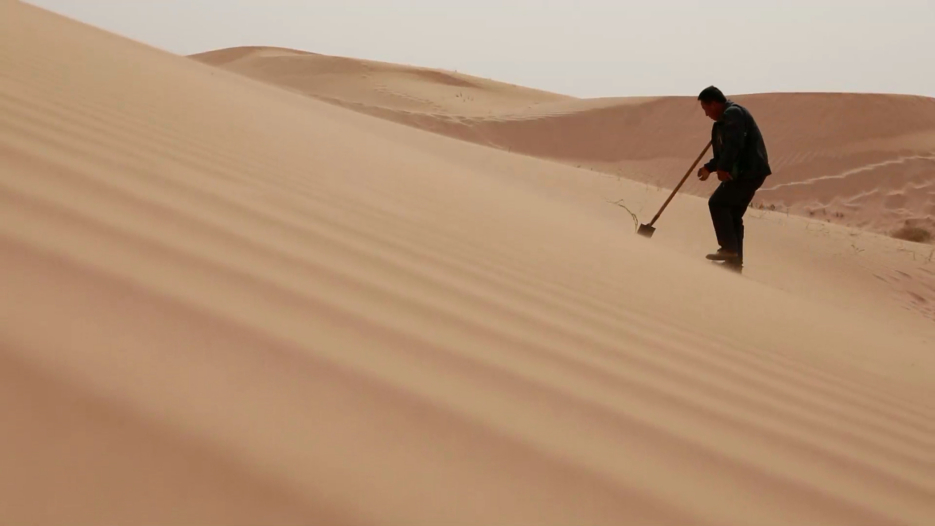
CGTN Photo
CGTN Photo
At that time, Zhang's family was relatively well-off in the village. They could afford "luxury food" such as wheat-flour buns and congee. Yet the overwhelming sandstorms have been a thorn in the side of Zhang and his father, Zhang Jiawang.
To improve the living environment and help the villagers grow for common prosperity, Zhang Jiawang contracted for part of the desert in the north of the village and started the afforestation in 1984. The roots could immobilize the drifting dunes, which stops the desert from expanding and reduces the damage caused by sandstorms.
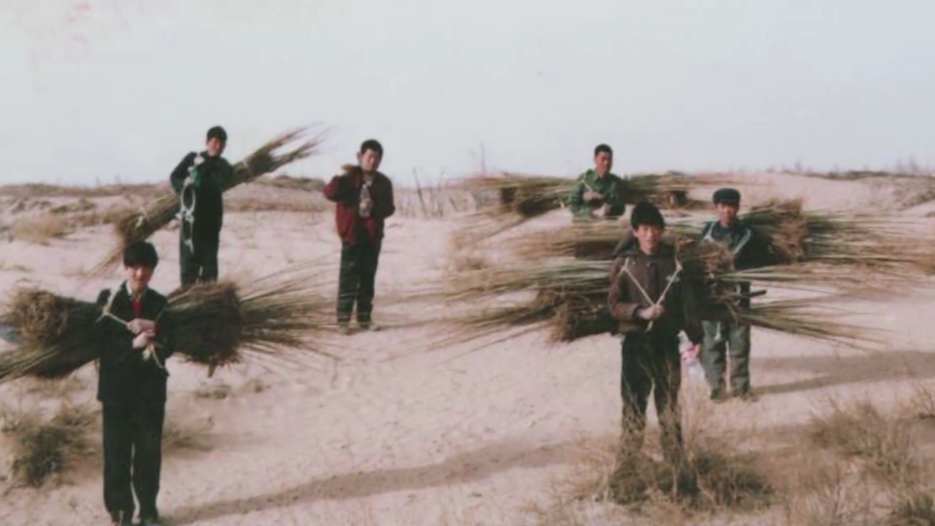
Photo courtesy of Zhang Liqiang
Photo courtesy of Zhang Liqiang
"Someday, there will be a forest instead of the desert. We'll sit under the green trees, enjoying freshly picked fruit and refreshing air. It must be wonderful." Father used to tell Zhang about his dream.
Hiring workers, purchasing saplings… The efforts significantly degraded the family's economic conditions. Wheat-flour buns were no longer on the table. They also had to sell off the valuables. Yet Zhang Jiawang wouldn't give up a bit.
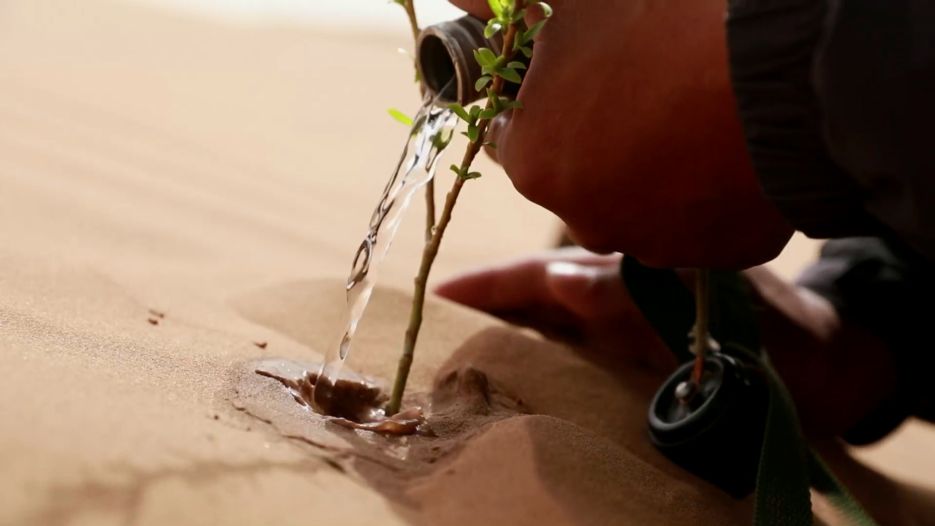
CGTN Photo
CGTN Photo
He'd been seriously ill due to years of hard work in the desert. Being bedridden, he urged Zhang Liqiang that: "The afforestation cause cannot be achieved within a couple of generations."
Zhang's mother, Niu Yuqin took over the task later on. Like her late husband, she spent most of her life in the forest. Fellow villagers would like to call her "Old Niu," which literally means a diligent cattle. She was one of the "Ten Most Eminent Women in China," a "National Model Worker" and one of the "Ten National Afforestation Pioneers." These awards have, however, little impact on Niu's lifestyle. Even when the family was almost broke, she didn't sell, nor cut down a single tree.

Zhang Liqiang and his parents. /Photo courtesy of Zhang Liqiang
Zhang Liqiang and his parents. /Photo courtesy of Zhang Liqiang
As the years go by, Niu became hard of hearing. She carries a small bell with her. It was a gift from Zhang Jiawang some fifty years ago. "It's more precious than a diamond ring to me," she said.
The family's cause continues. Zhang Liqiang joined his parents at the age of 20. He keeps trying new species of trees while preserves the sand breaks. In addition to Scots pines, Chinese willows and poplars, they have successfully planted cash crops such as Chinese dwarf cherry and hazels.
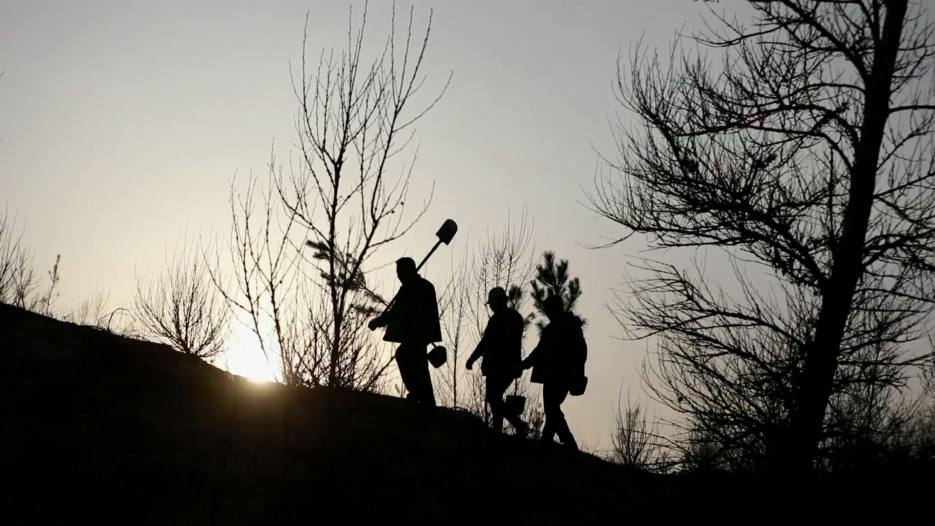
CGTN Photo
CGTN Photo
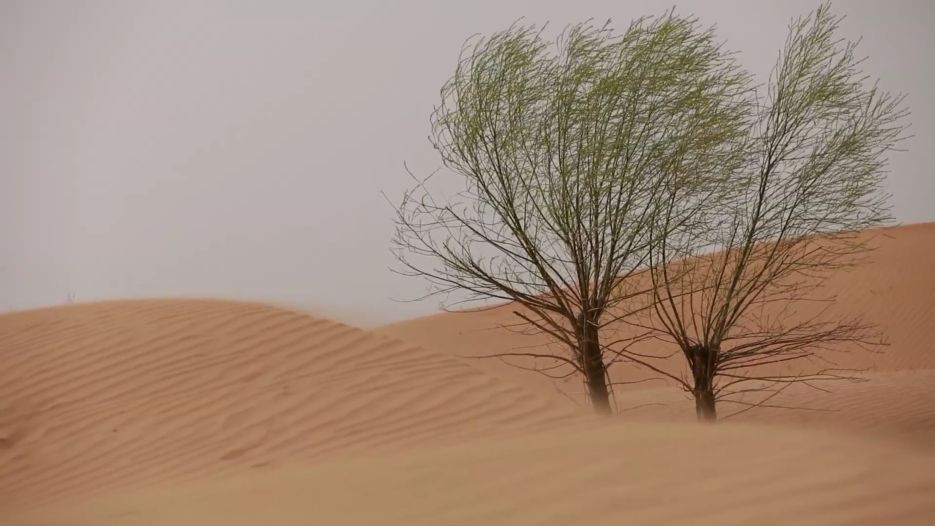
CGTN Photo
CGTN Photo
Every couple of days, Zhang drives his mother to the forest. The children wouldn't let Niu do physical labor anymore. But every time she insists in climbing up the ridge and trimming with scissors she's been carrying for a decade. She just can't let go of what she's been doing for her life.
Over the past 30 years, the governed desert area near Jingbian county has reached 73 km2. As much as 45 species have been planted here.
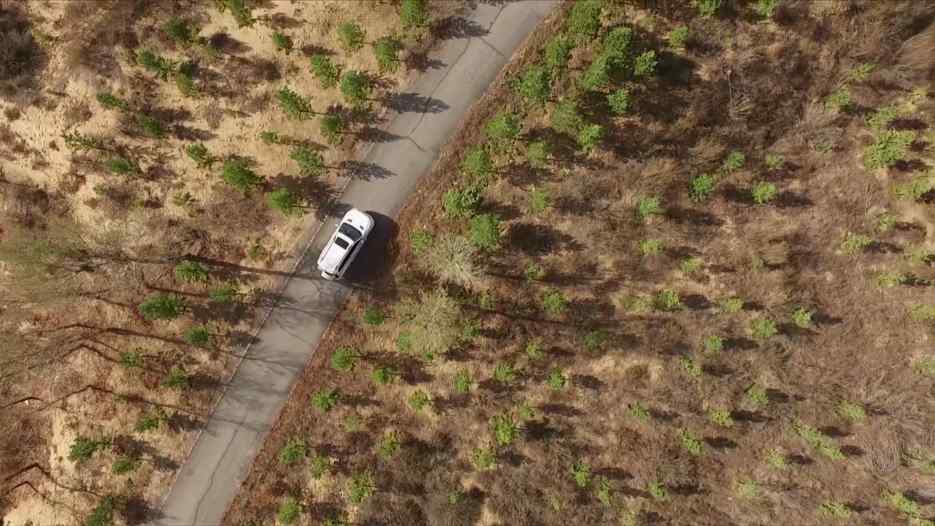
CGTN Photo
CGTN Photo
"Every blade of grass has the right to live," said Zhang. "We are taking care of those little lives." He's carefully watering the sapling. Not far from him, the land is filled with greenery planted by two generations of this family.
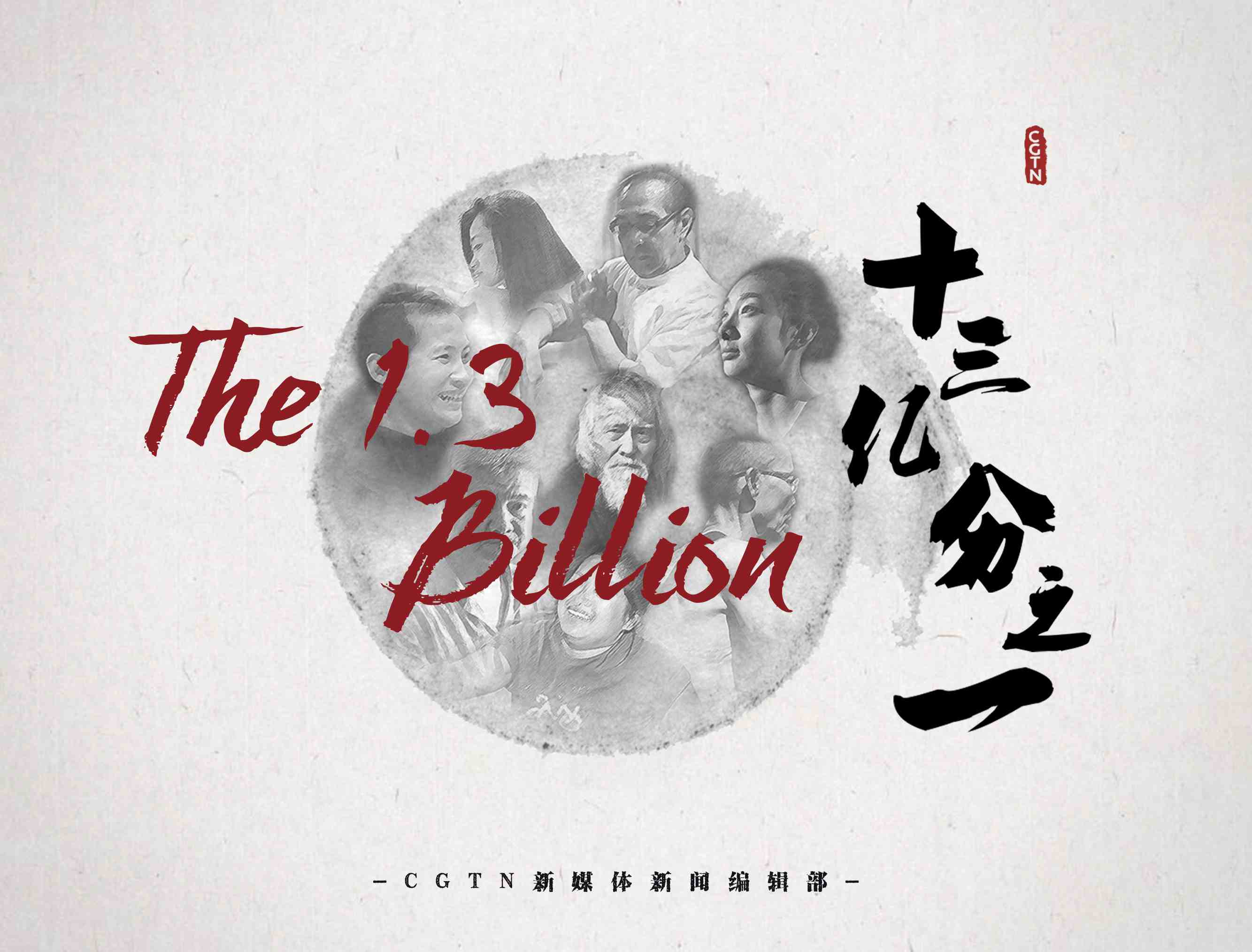
The story is one in The 1.3 Billion series exploring the diverse lives that make up China.
The story is one in The 1.3 Billion series exploring the diverse lives that make up China.

SITEMAP
Copyright © 2018 CGTN. Beijing ICP prepared NO.16065310-3
Copyright © 2018 CGTN. Beijing ICP prepared NO.16065310-3